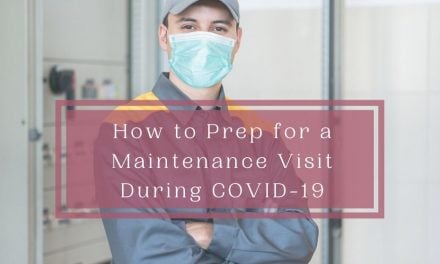 Doing your due diligence and taking the time to ensure that you get the best tenant out there is in your best interest. If you find a good tenant your job as a landlord or property manager will be so much easier, the time and effort you put in at the beginning will be well worth it.
Doing your due diligence and taking the time to ensure that you get the best tenant out there is in your best interest. If you find a good tenant your job as a landlord or property manager will be so much easier, the time and effort you put in at the beginning will be well worth it.
As I gain experience as a landlord I am always learning ways to do things that make my life easier and how to be more efficient. I also get a lot of great advice and tips from reading blog posts written by you folks on the Active Rain Blog and other blogging and Social Media sites I visit, so thank you. I have listed the six steps that I follow when renting a property.
1. Advertising that the property is for rent is obviously step #1 and the more details you include in your ad the less calls you will get with questions. The first questions the prospective tenants are going to have is how much the rent is and when the property is going to be available so include this information in your ad. I also list information about the property including; the rooms in the house, appliances, heat type, pet friendly or not, the neighborhood, etc. I list my properties on Craigslist and put a for rent sign in the front yard and have recently started including a flyer box next to my for rent sign that shares all of the information I include in my ad with my drive by prospects.
2. Showing the property is undoubtedly the most time consuming component to renting a property. In an effort to save myself a trip across town I have the prospects drive by, if they haven’t done so already to get a feel for the neighborhood. I also provide a link to the property management software I use which gives them access to the unlimited number of photos i have saved of the property inside and out. A tip I got from a blogger that I thought was a fantastic idea especially for the busy person who can’t just take off from work whenever they please is to schedule multiple people at an appointed time and have an open house type showing. An open house showing for one keeps you from having to make individual trips to show the house but it could also have an added bonus feature of creating a sense of urgency or desirability because there would be several potential tenants vying for the same property.
3. The Application process;is pretty straight forward I always include a link in my ad to an online application form so that prospects can apply online. This online application feature plus the link to detailed pictures of the house has actually worked out very well for me. I have had folks that are moving from out of town/state move into my rental without even seeing it in person. Make sure the application is completely filled out and require a copy of a photo id. I always verify employment and check with there previous landlords to make sure the prospects; paid rent, didn’t do anything illegal, and left the home in good condition. I always charge a $30 application fee which covers the cost of, and leads me to, step #4.
4. Tenant Screening can be the most important step and should include a credit report, criminal background search, and an eviction search at a minimum.
-Credit Report: A credit report will give you a glimpse into the prospects finances and indicate if they are responsible bill payers or not. I have dismissed a foreclosure and medical bill delinquencies, and even a person who had some delinquencies from years back but was now dutifully paying there bills. A credit report is more then a FICO score and so I don’t think a minimum score is necessarily a good criteria.
– Criminal Background: Trust me you do not want a criminal living on your property, and a criminal background check will ensure that you are not housing one of America’s most wanted.
– Evictions: An eviction report is a no brainer and is inexpensive, so no excuse not to get one.
5. The Rental Agreement is an important document that should outline what you expect of your tenants and what they can expect from you. You will want to be sure that you have incorporated all of the appropriate legal jargon that you will need for the state in which the property is located.
6. The Move in inspection is really more for the tenant then for the landlord but nonetheless is an important step. You would have done a post tenant inspection for the previous tenant in which you documented any damage and took updated pictures where appropriate. The move in inspection gives the prospect the opportunity to make note of anything that wasn’t already documented such as stains on the carpet, chipped tiles, broken cabinets, etc.
Once you’ve completed these six steps then you’re ready for your new tenants to move in and if all goes well they will live there a long time and treat your property as there own. If I’ve forgotten steps or if you have any other tips or advice I would love to hear your feedback!





